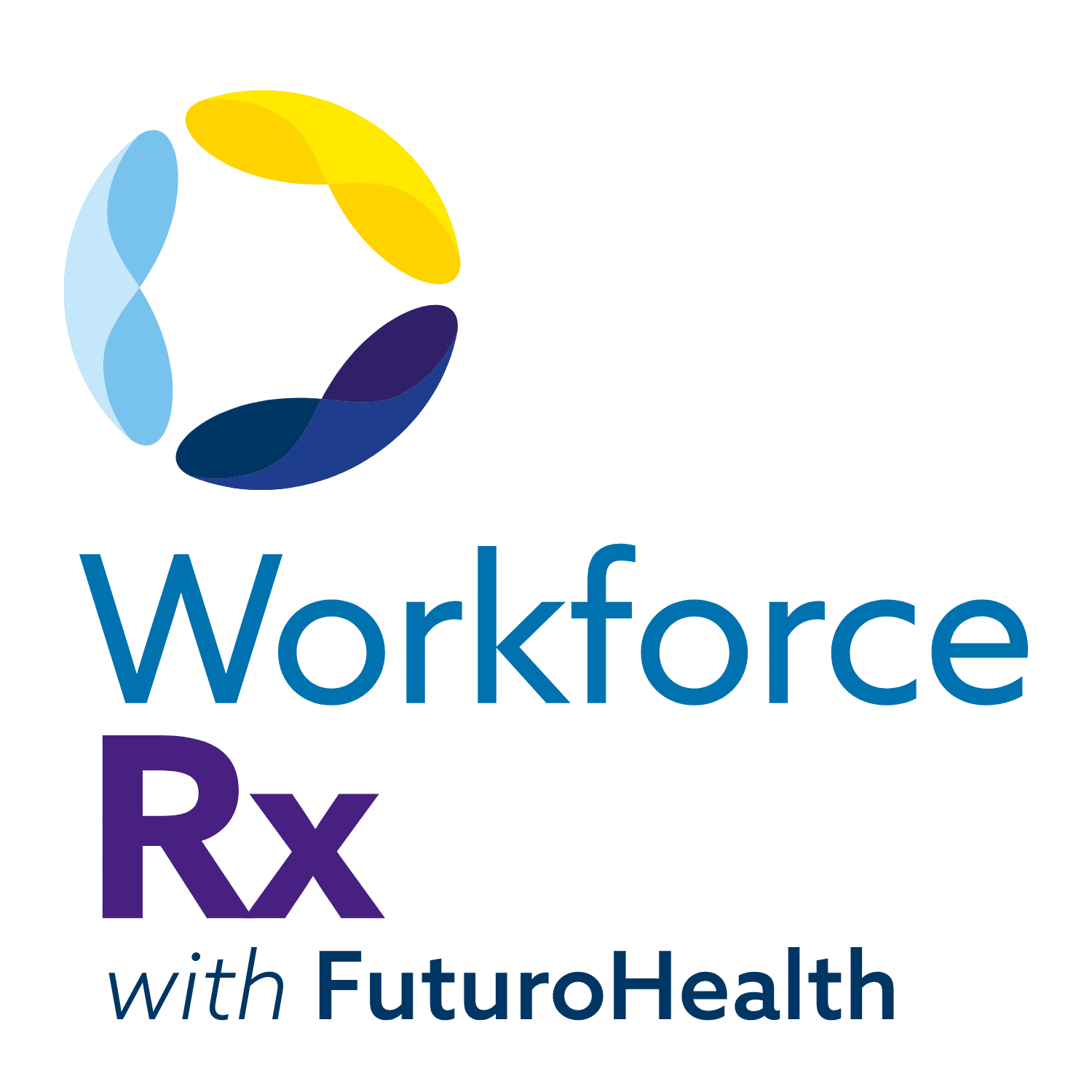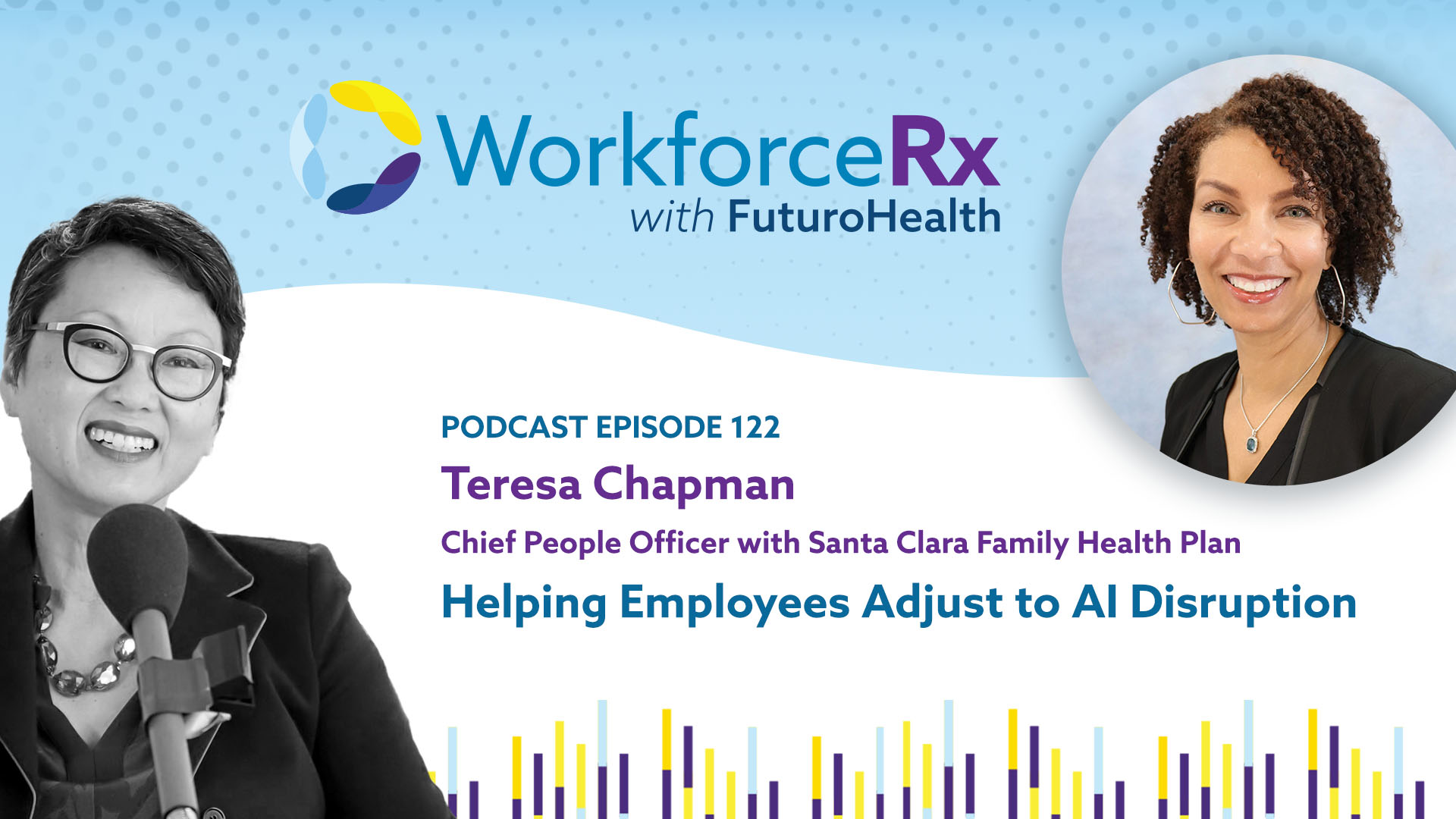WorkforceRx

WorkforceRx
Podcast Description
There has never been a stronger need for workers to adapt. To keep up with the speed of change, we must be prepared to shift into new job roles and pick up new skills. Traditional approaches no longer suffice. Futuro Health CEO Van Ton-Quinlivan interviews leaders and innovators for insights into the future of work, future of care, future of higher education, and alternative education-to-work models. We will need to draw on our collectively ingenuity to uncover ways to develop work, workers, and economic opportunity.
Podcast Insights
Content Themes
The podcast addresses themes such as the future of work, healthcare workforce challenges, economic security, and education reform, with episodes focusing on topics like the implications of AI in career entry, ageism in hiring, and innovative workforce development strategies, exemplified by discussions on apprenticeship degrees and intergenerational workforce dynamics.

There has never been a stronger need for workers to adapt. To keep up with the speed of change, we must be prepared to shift into new job roles and pick up new skills. Traditional approaches no longer suffice. Futuro Health CEO Van Ton-Quinlivan interviews leaders and innovators for insights into the future of work, future of care, future of higher education, and alternative education-to-work models. We will need to draw on our collectively ingenuity to uncover ways to develop work, workers, and economic opportunity.
Even though use of artificial intelligence in the workplace has nearly doubled for US employees in the past two years, a recent Gallup poll found that only 22 % of companies have a clear, communicated strategy for integrating AI. On today’s episode of WorkforceRx, we’re going to explore how organizations can help their employees adjust to AI disruptions and redefine their value in an AI context with Teresa Chapman, Chief People Officer with Santa Clara Family Health Plan, which serves over 300,000 members across California’s Santa Clara County. “We want to make sure to equip our employees to be expert users of a multitude of AI tools so that they have the confidence to evolve with the surrounding environment,” she shares. As Chapman tells Futuro Health CEO Van Ton-Quinlivan, the company is also working to develop a “co-architecture” with employees and AI to achieve a symbiotic relationship that draws on the strengths of each and keeps the special attributes of humans in focus. “The future of work is going to really be more around problem solving and creativity and emotional intelligence and relationship building. It’s going to be about understanding where the human fits in.” Don’t miss this timely look at how forward-thinking employers can maintain, and even strengthen, the human touch in healthcare and other sectors.

Disclaimer
This podcast’s information is provided for general reference and was obtained from publicly accessible sources. The Podcast Collaborative neither produces nor verifies the content, accuracy, or suitability of this podcast. Views and opinions belong solely to the podcast creators and guests.
For a complete disclaimer, please see our Full Disclaimer on the archive page. The Podcast Collaborative bears no responsibility for the podcast’s themes, language, or overall content. Listener discretion is advised. Read our Terms of Use and Privacy Policy for more details.